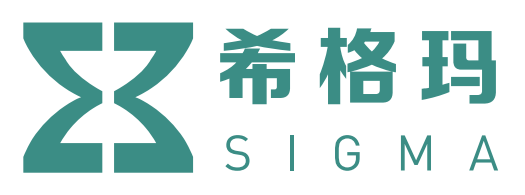Sigma Law | Legal Analysis on Requesting Refunds for Unsuccessful Service

Introduction
While we advocate conducting affairs in accordance with the law and regulations, in reality, many people seek favors from others for various needs such as their children's education and personal work. If the matter is not accomplished, can a refund be claimed? How to claim a refund is a common issue.
Currently, in judicial practice, there are mainly the following legal views:
- Improper Enrichment of the Entrusted Person
According to Article 122 of the Civil Code: "A person who, without legal basis, obtains an improper benefit from another person, and the person who suffered a loss has the right to request the return of the improper benefit."
From this, it can be concluded that improper enrichment needs to meet four constitutive elements: no statutory or agreed upon grounds; one party benefits; the other party suffers a loss; there is a causal relationship between the gain and the loss.
Related Case Law
(2023) Liaoning 10 Civil Judgment No. 554: The court held that the appellant intended to use money to ask for help in building relationships, violating the normal procedure and achieving illegal purposes. Therefore, the property obtained by the appellant, Cui Ruirui, belongs to improper enrichment. Cui Ruirui obtained an improper benefit without legal basis, and Ma Xiaofeng and Jiang Liying can request the return of the benefits obtained. Cui Ruirui failed to provide evidence to prove that the subject matter of this case should be returned by a third party. The original judgment to be returned by Cui Ruirui is not improper. According to the disputed facts, this case should be a dispute of improper enrichment rather than a commission contract dispute. The first-instance case was wrongly determined and should be corrected.
Summary
The recipient, by accepting funds for handling work through improper procedures, disrupts the normal process of job promotion and harms the rights of other citizens under equal conditions. This act is illegal, and the requester has the right to demand a refund. Invalid civil legal actions on both sides are invalid.
Invalid Civil Legal Actions on Both Sides
According to Article 153 of the Civil Code: Civil legal actions that violate mandatory provisions of laws or administrative regulations are invalid. However, this does not apply to civil legal actions that violate public order and good customs. Article 157 stipulates: After a civil legal action is declared invalid, revoked, or determined to be ineffective, the property obtained by the actor through the action shall be returned; if it cannot be returned or is unnecessary to return, compensation shall be made at a reduced value. The party at fault shall compensate the other party for the loss caused thereby; if both parties are at fault, they shall each bear corresponding responsibilities. If there are other provisions in the law, they shall be followed.
Civil legal actions that violate public order and good customs are invalid. Public order refers to the general order necessary for the existence and development of the state and society; good customs refer to the good customs necessary for the existence and development of the state and society. Public order and good customs mean that the behavior of civil subjects should comply with public order, conform to good customs, not violate the public order of the state, and conform to the general morals of society.
Related Case Law
Hunan 0381 Civil Judgment No. 3049: The court held that according to relevant legal provisions, civil legal actions that violate mandatory provisions of laws or administrative regulations are invalid, and civil legal actions that violate public order and good customs are invalid. In this case, Nie Jianliang entrusted Zhou Xiangyang to handle job promotion, and paid a prepayment of 50,000 yuan. The matter entrusted by Nie Jianliang violated public order and good customs, and should be deemed invalid according to the law. The defendant should refund the amount received to the plaintiff. Regarding the plaintiff's request for the defendant to pay interest, according to relevant legal provisions, after a civil legal action is declared invalid, revoked, or determined to be ineffective, the property obtained by the actor through the action shall be returned; if it cannot be returned or is unnecessary to return, compensation shall be made at a reduced value. The party at fault shall compensate the other party for the loss caused thereby; if both parties are at fault, they shall each bear corresponding responsibilities. If there are other provisions in the law, they shall be followed. In this case, the plaintiff knew that the matter entrusted violated public order and good customs, and was at fault for this, so he was responsible. Therefore, the court does not support the plaintiff's request for interest. As for the plaintiff's request for attorney's fees, since the plaintiff did not submit evidence of actual expenses to the court and the plaintiff was at fault in this entrusted matter, the court does not support it. The defendant Zhou Xiangyang, after being lawfully summoned by the court, did not appear in court without a valid reason, which is deemed as a waiver of his relevant litigation rights. He should bear the adverse legal consequences resulting from this.
Summary
Handling relevant matters through improper means such as requesting help or building relationships deviates from the normal process of work promotion and harms the rights of other citizens under equal conditions. This civil legal action should be considered invalid. After a civil legal action is declared invalid, the property obtained by the actor through the action should be returned. It is important to note that in cases involving such requests, the court does not support the plaintiff's request for interest due to the plaintiff's fault.
Not Within the Scope of Civil Litigation
Dismissal of the Lawsuit
Article 3 of the Civil Procedure Law of the People's Republic of China provides: People's courts shall apply the provisions of this Law to civil lawsuits filed between citizens, legal persons, other organizations, and between them and to civil lawsuits arising from property and personal relations.
Article 122 of the Civil Code of the People's Republic of China
The lawsuit must meet the following conditions:
(1) The plaintiff is a citizen, legal person, or other organization that has a direct interest in the case; (2) There is a clear defendant; (3) Specific litigation claims, facts, and reasons; (4) Fall within the scope of civil litigation cases accepted by the people's courts and within the jurisdiction of the people's court where the defendant is domiciled.
Related Case Law
(2023) Jilin 02 Civil Judgment No. 1819: The court held that according to Article 8 of the Civil Code of the People's Republic of China: "Civil subjects shall not violate the law or public order and good customs when engaging in civil activities." It can be inferred from the above legal provisions that civil activities must adhere to the principle of legality, and the content of civil legal actions must be legal. In this case, it is widely known that strict procedures are required for the recruitment of personnel in government and enterprise units, and no large sums of money need to be paid. Despite this, Zhang Zhiqiang paid 110,000 yuan to Liu Lili to handle a position at Jilin City Central Hospital, claiming that the work had been completed. This payment was made for the purpose of gaining illegal benefits and constitutes a debt arising from illegal reasons. Regardless of whether it is based on a contract dispute or a claim of improper enrichment, Zhang Zhiqiang's claim does not fall within the scope of civil cases accepted by the people's courts. Therefore, the lower court's decision to dismiss Zhang Zhiqiang's lawsuit was correct.
Summary
Arranging for an unqualified individual to handle relevant qualifications by paying for such services distorts the normal competition mechanism and harms public interests. The property rights being protected by the lawsuit do not fall within the scope of civil litigation.
The Entrusted Person May Constitute a Crime
Article 164 of the Criminal Law of the People's Republic of China [Bribery of non-state functionaries]: Whoever gives money or property to the staff of a company, enterprise, or other entity in order to seek illegitimate benefits, with a large amount, shall be sentenced to fixed-term imprisonment of not more than three years, criminal detention, or control, and shall also be fined; if the amount is huge, or if there are other serious circumstances, they shall be sentenced to fixed-term imprisonment of not less than three years but not more than ten years, and shall also be fined; if the amount is particularly huge, or if there are other particularly serious circumstances, they shall be sentenced to fixed-term imprisonment of not less than ten years or life imprisonment, and shall also be fined or confiscated of property. If this law provides otherwise, such provisions shall apply.
Article 389 of the Criminal Law [Bribery]: Giving money or property to state functionaries to seek illegitimate benefits constitutes the crime of bribery. In economic transactions, if a person violates the state regulations and gives money or property to state functionaries, or violates the state regulations and gives kickbacks or fees to state functionaries under various names, it shall be punished for bribery. If money or property is given to state functionaries due to extortion and no illegitimate benefit is obtained, it is not bribery.
Related Case Law
(2023) Gansu 0725 Criminal First Judgment No. 75: In this case, the defendant, Mao (Defendant No. 2), entrusted Dai to grant second-level athlete technical levels to 40 students in violation of the rules. As a token of gratitude to Dai, from April 2014 to January 2015, Mao transferred a total of 630,000 yuan to Dai through bank transfers.
In the end, the defendant Mao was convicted of bribery by entities and sentenced to one year and six months in prison, and fined 200,000 yuan; for the crime of bribery, he was sentenced to one year and two months in prison. The sentences were combined, resulting in a total term of imprisonment of two years and eight months. The decision was made to execute a term of imprisonment of two years and six months, with a three-year probation, and a fine of 200,000 yuan.
Summary
Paying for someone to handle work-related matters for individuals who do not meet the criteria disrupts the normal process of work promotion and harms the rights of other citizens under equal conditions. The person paying may be charged with bribery, while the person making the request may be charged with bribery.
The Entrusted Person Suspected of Violation of Law or Crime
Referral to Public Security and Supervision Authorities
Article 11 of the Supreme People's Court's Provisions on Several Issues Concerning the Trial of Civil Disputes Involving Economic Crimes stipulates: People's courts, in cases where economic disputes are accepted as economic disputes, and after trial, if it is determined that they do not belong to economic dispute cases but have suspicions of economic crimes, they shall rule to dismiss the lawsuit and transfer the relevant materials to the public security organs or the supervisory organs.
Related Case Law
(2022) Heilongjiang 0403 Civil First Judgment No. 1317: The court held that after examination, according to the plaintiff's statement, the money involved in the case was a favor fee paid to someone to handle pension insurance matters. The situation does not fall within the scope of civil cases, and the plaintiff and other persons involved may be involved in economic crimes in the process of handling pension insurance. Relevant materials shall be transferred to the relevant departments. The ruling is as follows: The lawsuit against Xu Yanshuang is not accepted by this court.
Summary
In cases of economic disputes involving economic crimes, whether the economic dispute claimed by the parties should be accepted as a civil case depends on whether the economic dispute and the suspected economic crime belong to the same legal fact. If they belong to the same legal fact, the lawsuit shall be dismissed, and the relevant materials shall be transferred to the public security or supervisory authorities. If they do not belong to the same legal fact, but the economic dispute is only related to the suspected economic crime, the economic dispute shall be continued to be heard, and if there is concrete evidence to prove that the legal relationship in the case involves the handling of the suspected economic crime, the trial and judgment should be based on handling the economic crime.
The Entrusted Person May Be Guilty of Fraud
Judgment to Return the Stolen Money to the Victim
Article 266 of the Criminal Law [Fraud]: Whoever cheats others of their public or private property, and the amount is large, shall be sentenced to fixed-term imprisonment, criminal detention, or control of less than three years, and shall also be fined or solely fined; if the amount is huge or there are other serious circumstances, they shall be sentenced to fixed-term imprisonment of not less than three years but not more than ten years, and shall also be fined; if the amount is particularly huge or there are other particularly serious circumstances, they shall be sentenced to fixed-term imprisonment of not less than ten years or life imprisonment, and shall also be fined or confiscated of property. If this law provides otherwise, such provisions shall apply.
According to Article 1 of the Supreme People's Court and the Supreme People's Procuratorate's Interpretation on Several Issues Concerning the Specific Application of Law in Handling Criminal Cases of Fraud: Cheating others of their public or private property with a value of three thousand yuan or more, ten thousand yuan or more, or fifty thousand yuan or more shall be determined as the large amount, huge amount, or particularly huge amount referred to in Article 266 of the Criminal Law. Fraud involving a value of three thousand yuan or more may be investigated and prosecuted.
Related Case Law
(2021) Liaoning 04 Criminal Final Judgment No. 179: The court held that the appellant, Liu Lili, cheated others with the purpose of illegal possession, deceiving them into giving a huge amount of money, and her actions constituted the crime of fraud.
Upon investigation, the victim, Jin, entrusted Liu Lili's brother Liu to handle a job for her daughter and paid 1,000,000 yuan. Liu Lili then asked Jin for 100,000 yuan, claiming that the job had been completed, and disappeared. Nearly three years later, when the victim found Liu Lili again, she issued a promissory note for the 100,000 yuan, claiming that she had no money. After being lawfully detained by the public security organs, Liu Lili disappeared. The final second-instance court upheld the original judgment: the defendant Liu Lili was convicted of fraud and sentenced to four years and three months in prison, and fined 150,000 yuan. Second, continue to recover 100,000 yuan of Liu Lili's ill-gotten gains and return them to the victim, Jin.
Summary
Requesting others to handle work through illegal means and concealing or misrepresenting facts to receive funds for the request constitute the crime of fraud. Although highly harmful to society, the funds received should be returned to the victim.
Conclusion
There is no shortcut to success. While seeking convenience can be understood, national policies such as admissions and promotions are based on various criteria for selection. Arranging for work to be handled by someone not meeting the requirements violates social order and morality, constituting illegal and criminal acts, and individuals involved should bear legal responsibilities. Uphold moral integrity and act as a true gentleman, and maintain public order and good moral standards for the benefit of society.



